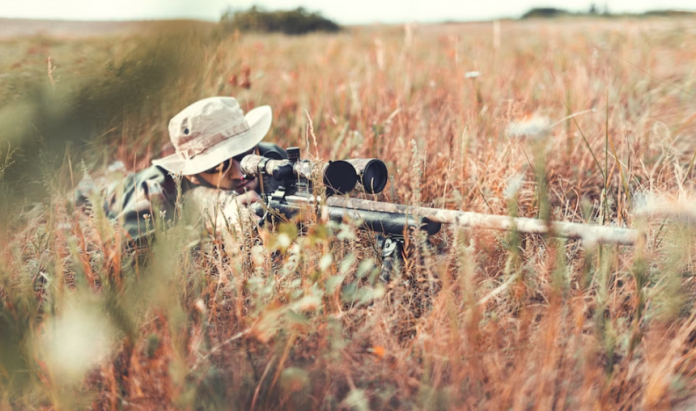Paper targets are the simplest, most widespread, and most economical shooting target types. They come in many different varieties, including bullseye targets and silhouette targets.
Steel targets are a popular choice for serious shooters and tactical training. They are adamant and can resist hundreds of rounds.
Some are reactive, such as polymer gong targets and gunfighter trees that spin when hit. Others are explosives that explode upon contact with a bullet.
Paper Targets
Paper targets are a staple in shooting training. They offer a clear picture of your shot placement and provide instant feedback to identify areas that need improvement. Paper targets are also affordable and customizable.
They come in various thicknesses designed for different calibers. Thicker targets will stand up to heavier projectiles and be more durable. A thinner target will be more wind-sensitive and require more frequent replacement.
Some targets, such as dual-laminated paper targets, are designed to give you a spatter effect on impact. These have a dark-colored overlay and a light-colored underlayer separated by plastic film. When hit, the edge of the overlay shrivels to expose the brighter underlayer around the hole for more straightforward observation from farther away. These types of targets are popular in action shooting, metallic silhouette, and field target disciplines. They are also used for target archery and crossbows.
Steel Targets
The audible ting, bong, or clang of hitting steel targets adds a new element of fun and challenge to target shooting. These reactive targets help to improve a shooter’s accuracy and provide feedback. They can also help to keep the range safe by preventing dangerous ricochets.
Steel targets like AR500 targets are more durable than paper targets and can hold up to thousands of rounds. They come in various forms and sizes, making them appropriate for pistols and rifles. Some are heat-treated to strengthen their longevity; they may endure for years when correctly cared for.
The type of steel used in a target will determine its thickness, hardness, and ability to withstand impact from high-velocity ammunition. A coating such as powder or enamel paint can extend the target’s lifespan and make it easier to see hits. Inspecting the target regularly for rust or other signs of wear and tear is critical.
Foam Targets
The precision required to shoot archery well involves a lot of practice and skill. It also necessitates a great deal of physical power and stamina. Foam targets are a popular choice for bowhunters and target archers alike. They are durable and provide a realistic shooting experience. They come in various sizes and shapes, from full-body models to smaller ones, ideal for learning fundamental skills. Foam targets are available in multiple materials, including polyurethane and high-density foam.
The benefits of a foam target are that it can be easily repositioned and will not tear when shot with field points or even a broadhead. The drawback is that determining if you have struck the target might take a lot of work.
Bowling Pin Targets
Bowling pin targets are a type of shooting target used in pin shooting. In this competition, shooters race against one another to knock standard bowling pins off a table in the shortest amount of elapsed time. It is often considered a fun and relaxing way to get involved in competitive shooting, and it can also serve as an introduction for new shooters to regular competition.
In most cases, pin shooters use a variety of centerfire handguns for this sport, including revolvers and semi-automatic pistols in calibers. However, it is considered a significant breach of etiquette and sportsmanship for shooters of “minor” calibers to hand load their ammunition to levels that approach head-to-head equivalency with “major” calibers, which gives them an unfair advantage over competitors using these larger-caliber firearms.
Although these targets can be shot with most centerfire handgun ammunition, they are not suitable for rifles or shotgun slugs and buckshot. When using steel targets, always maintain a minimum of 15 yards between the shooter and the target when using non-frangible handgun ammunition and 100 yards when shooting rifles.


